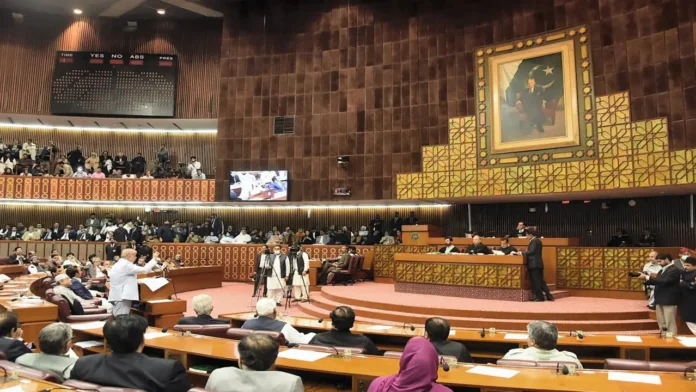The cost and use of public money ignited debates and discourse when the 22-day Punjab Assembly Session ended prematurely. The province-centered meeting meant to tackle essential laws and issues was closed without notice, making people question how practical or answerable legislative functions are.
During the session, 12 seats were available, with members attending a cumulative 2,961 times over 12 sitting days. . This includes Rs. 1,776,600 for each member who attended all sessions, reflecting the substantial financial implications of legislative proceedings.
The total compensation package for all 368 assembly members amounts to Rs. 26,496,000, illustrating the significant financial commitment involved in legislative governance.
Members of the Punjab Assembly receive daily allowances of Rs. 6,000 during session days, intended to cover their expenses while conducting legislative duties. Additionally, various allowances such as Rs. 15 per kilometer for travel expenses, daily constituency allowances of Rs. 1,000, and daily session allowances of Rs. 2,000 are provided. Furthermore, an annual supplementary travel allowance of Rs. 300,000 is allocated to staff supporting the assembly’s operations.
During session periods, junior assembly staff members receive additional daily allowances of up to Rs. 300 to Rs.
The sudden ending of the assembly session has called into question the use of public funds and legislative priorities. Supporters of the assembly’s functioning underscore the need for oversight by the legislature and its deliberations in addressing vital issues affecting the province. They contend that although costly, this is necessary for upholding democratic processes and ensuring enough discussions before making any law through an act of parliament.
There is now general agreement that there should be openness and responsibility when spending public money on legislative activities. People are demanding changes geared towards enhancing efficiency in legislation, reducing wasteful expenditures, and increasing confidence among citizens during lawmaking.
In summary, what happened at the Punjab Assembly’s sitting, which lasted only 22 days, brings out financial implications and democracy through parliamentary oversight functions.


